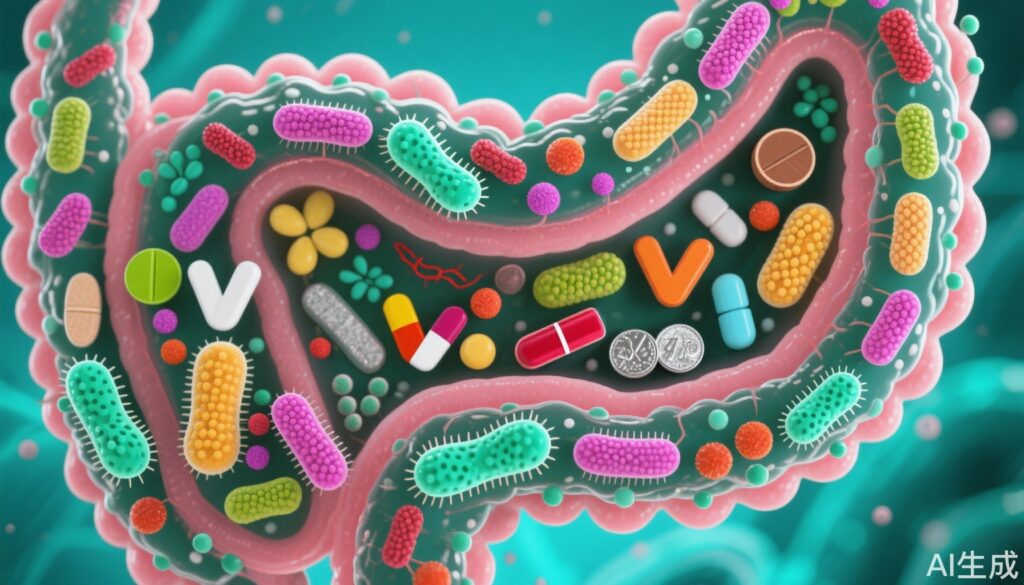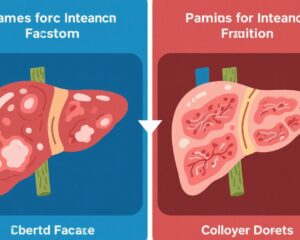Study Background and Disease Burden
The human gut microbiome plays a crucial role in health through its capacity to metabolize dietary components, influence immune responses, and synthesize important metabolites. Alterations in the gut microbiome composition and function have been implicated in diverse diseases ranging from gastrointestinal disorders to metabolic syndrome. While preclinical models have suggested that vitamins and minerals influence the gut microbial community structure and activity, evidence from well-controlled human trials remains limited. Most existing human studies employ micronutrient supplementation at supraphysiological doses, which may not reflect everyday nutritional practices. Understanding how routine multivitamin/multimineral (MVMM) supplementation impacts the gut microbiome in healthy adults could provide insights into nutritional modulation of host-microbe interactions and potential implications for health maintenance and disease prevention.
Study Design
This investigation was conducted as a randomized, controlled, cross-over trial enrolling 28 healthy adults, predominantly female (68%), with an average age of 33 years (SD 13). Participants underwent two 10-day intervention periods separated by a 15-day washout. During one period, they received a MVMM supplement formulated around UK dietary recommendations for 23 micronutrients; during the control period, no supplementation was administered. Dietary intake was meticulously recorded and replicated between periods to isolate the effect of supplementation. Microbiome profiling from fecal samples was performed using 16S rRNA gene sequencing to analyze compositional changes. Microbial metabolite profiling included proton nuclear magnetic resonance (1H NMR) spectroscopy for global metabolome assessment, gas chromatography to quantify short chain fatty acids (SCFAs), and colorimetric measurements for sulfur compounds.
Key Findings
The MVMM supplementation period demonstrated significant effects on both gut microbiota composition and microbial metabolite profiles compared to the control period. Notably, the absolute abundance of Lachnoclostridium and UCG_005 taxa decreased, whereas concentrations of total SCFAs, particularly propionate and butyrate, increased significantly. Sulfide levels also rose during supplementation.
Compared with baseline values, MVMM supplementation reduced the abundance of several taxa, including Desulfobacterota, Actinobacteriota, Bifidobacteriaceae, Erysipelatoclostridiaceae, and Veillonellaceae. Of these, the decrease in Desulfobacterota and Erysipelatoclostridiaceae correlated with participants’ background dietary intake: higher consumption of saturated fats and total carbohydrates was linked to the reduction in Desulfobacterota, while intakes of vitamins B2, B12, E, and iron were associated with declines in Erysipelatoclostridiaceae. This suggests that habitual diet modulates microbial responses to micronutrient supplementation.
The elevation in propionate, a key SCFA implicated in beneficial metabolic effects such as improved glucose homeostasis and anti-inflammatory action, underscores the functional importance of microbiome shifts. Sulfide increases may have complex implications, as sulfide can influence intestinal barrier function and microbial community ecology.
No significant microbiome or metabolite changes were observed during the control period, affirming the effects were attributable to MVMM supplementation.
Expert Commentary
This study provides valuable insights into the nuanced interplay between micronutrient supplementation and the gut microbiome under controlled dietary conditions. The use of dosages aligned with recommended dietary intakes enhances the translational relevance, reflecting common supplementation practices rather than pharmacological doses. The finding that habitual diet modifies the microbiome’s response emphasizes personalized nutrition considerations in microbiome-targeted interventions.
While the study’s 10-day supplementation and relatively small cohort limit the generalizability and long-term extrapolation, the rigorous crossover design, precise dietary control, and multifaceted microbiome and metabolite profiling lend robustness to the conclusions. Future research should explore the durability of microbiome changes, functional implications for host physiology, and effects in populations with underlying health conditions.
Conclusion
Short-term MVMM supplementation in healthy adults induces measurable alterations in gut microbial composition and increases concentrations of beneficial microbial metabolites such as propionate and butyrate. These effects are modulated by the individual’s background diet, highlighting the potential for diet-micronutrient interactions to shape microbiome dynamics and consequently influence host health. These findings advance our understanding of nutritional modulation of the gut ecosystem and pave the way for personalized approaches to optimize microbiome-mediated health outcomes.
References
Mckirdy S, Koutsos A, Nichols B, Anderson M, Dhami S, Chowdhury CR, Mascellani Bergo A, Havlik J, Gerasimidis K. Micronutrient supplementation influences the composition and diet-originating function of the gut microbiome in healthy adults. Clin Nutr. 2025 Aug;51:293-303. doi: 10.1016/j.clnu.2025.06.020. Epub 2025 Jun 25. PMID: 40645132.
Additional supporting literature:
- Rinninella E, Raoul P, Cintoni M, et al. What is the Healthy Gut Microbiota Composition? A Changing Ecosystem across Age, Environment, Diet, and Diseases. Microorganisms. 2019 Jan;7(1):14.
- Valdes AM, Walter J, Segal E, Spector TD. Role of the gut microbiota in nutrition and health. BMJ. 2018 Nov 13;361:k2179.
- Gilbert JA, Blaser MJ, Caporaso JG, et al. Current understanding of the human microbiome. Nat Med. 2018 Apr;24(4):392-400.



